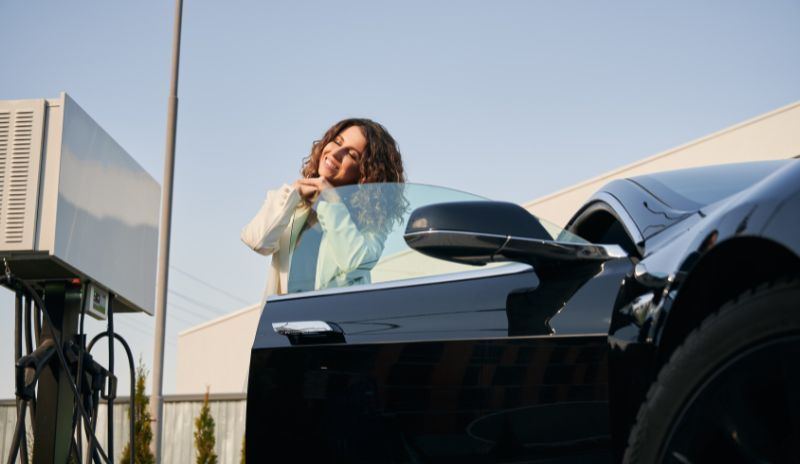Porsche Extended Warranties vs Insurance: What's Covered?
See How We're Different
or call us: (214) 253-0570
WOwning a Porsche is more than just driving a luxury vehicle—it's an experience that combines performance, engineering excellence, and prestige. However, maintaining such a high-performance car can come with significant costs, especially when unexpected repairs arise. To protect against these expenses, many Porsche owners consider extended warranties or insurance policies. But what exactly do these options cover, and how do they differ?
This comprehensive guide explores the distinctions between Porsche extended warranties and insurance, helping you make an informed decision about which protection plan suits your needs best.
Understanding Porsche Extended Warranties
What Is a Porsche Extended Warranty?
A Porsche extended warranty, often referred to as a Vehicle Service Contract (VSC), is a service agreement that extends the coverage of your original manufacturer’s warranty beyond its expiration date. Unlike the standard warranty that comes with a new Porsche, an extended warranty can be purchased either before the original warranty expires or sometimes even after, depending on the provider.
These warranties are designed to cover the cost of repairs and replacements for specific mechanical and electrical components of your vehicle, providing peace of mind against unexpected breakdowns. For many Porsche owners, the thrill of driving a high-performance vehicle is often accompanied by the concern of potential repair costs. An extended warranty alleviates this worry, ensuring that you can enjoy your Porsche without the looming fear of expensive repairs.
Coverage Details
Typically, Porsche extended warranties cover major components such as the engine, transmission, drivetrain, air conditioning, electrical systems, and sometimes even the infotainment system. The exact coverage varies depending on the plan you choose and the provider.
For example, Porsche’s own extended warranty plans usually offer tiered coverage levels, ranging from powertrain-only protection to comprehensive bumper-to-bumper coverage. This flexibility allows owners to select a plan that matches their risk tolerance and budget. Additionally, some plans may include roadside assistance, rental car reimbursement, and trip interruption benefits, making them even more appealing for those who frequently travel or rely heavily on their vehicles.
Duration and Cost
Extended warranties for Porsche vehicles generally last from one to seven years beyond the original warranty, or for a certain number of miles, such as 100,000 miles total. Pricing depends on factors including the vehicle model, age, mileage, and the scope of coverage.
On average, Porsche extended warranties can cost anywhere from $1,500 to $5,000 or more. While this might seem steep, it can be a worthwhile investment considering the high cost of repairs for luxury vehicles. Moreover, many owners find that the peace of mind provided by an extended warranty is invaluable, particularly when faced with the potential for costly repairs that can arise as vehicles age. It's also worth noting that some extended warranties are transferable, which can enhance the resale value of your Porsche should you decide to sell it in the future.
What Does Auto Insurance Cover for Porsche Owners?
Basic Auto Insurance Coverage
Auto insurance is a legal requirement in most states and primarily protects you against financial losses resulting from accidents, theft, or damage to your vehicle caused by external factors. Standard policies include liability coverage, collision coverage, and comprehensive coverage. Liability insurance is particularly important for Porsche owners, as the high value of these vehicles can lead to significant financial repercussions in the event of an accident.
Liability insurance covers injuries or damages you cause to others, collision covers damage to your Porsche from accidents, and comprehensive covers non-collision events such as theft, vandalism, fire, or natural disasters. Given the premium nature of Porsche vehicles, many owners may also consider additional features like agreed value coverage, which ensures that in the event of a total loss, the owner receives a pre-determined amount that reflects the car's true worth, rather than its depreciated market value.
Limitations of Insurance for Mechanical Failures
One critical distinction is that auto insurance does not cover mechanical breakdowns or wear-and-tear repairs. If your Porsche’s engine fails due to a manufacturing defect or normal use, your insurance policy will not cover the repair costs. This limitation can be particularly concerning for owners of high-performance vehicles, where the cost of repairs can be exorbitant. Regular maintenance and timely servicing are essential to mitigate the risk of unexpected breakdowns, but they do not eliminate the potential for costly repairs.
This is where extended warranties come into play, as they specifically address these types of repairs that insurance excludes. Many Porsche dealerships offer tailored extended warranty plans that cover a range of mechanical issues, providing peace of mind for owners who want to protect their investment. Additionally, some independent providers offer specialized coverage for high-performance vehicles, which can be a valuable option for those looking to ensure comprehensive protection against mechanical failures.
Additional Insurance Options
Some Porsche owners opt for gap insurance, which covers the difference between the car’s value and the amount owed on a loan or lease if the vehicle is totaled. Others may purchase roadside assistance or rental car reimbursement as add-ons to their insurance policies. These additional options can be particularly beneficial for those who frequently travel long distances or participate in track days, where the likelihood of needing roadside assistance may be higher.
While these add-ons enhance convenience and financial protection, they still do not cover mechanical repairs or component failures. Furthermore, some owners might consider specialized insurance policies that cater specifically to luxury and exotic cars, which can offer unique benefits such as agreed value coverage and lower deductibles for repairs. These policies are designed to reflect the true value of the vehicle and provide coverage that aligns with the lifestyle and needs of Porsche enthusiasts, ensuring that they can enjoy their driving experience without undue financial worry.
Comparing Coverage: Extended Warranty vs Insurance
What Repairs Are Covered?
Extended warranties cover repairs related to mechanical and electrical failures, including parts and labor for components like the engine, transmission, and fuel system. Insurance covers damage from accidents, theft, or external events but excludes mechanical breakdowns.
For example, if your Porsche’s transmission fails due to internal wear, an extended warranty would cover the repair, whereas insurance would not. Conversely, if your car is damaged in a collision, insurance would pay for repairs, but the extended warranty would not. It's important to note that extended warranties may also include coverage for certain wear-and-tear items, such as brake pads and batteries, depending on the policy. This can provide peace of mind for drivers who want to ensure that their vehicle remains in optimal condition as it ages.
Additionally, some extended warranties offer roadside assistance and rental car reimbursement, which can be invaluable during unexpected breakdowns. This added layer of service can alleviate the stress of being stranded and allow you to maintain your daily routine while your vehicle is being repaired. In contrast, insurance policies typically focus on damage from external factors and may not cover the same level of mechanical issues, highlighting the distinct roles each type of coverage plays in vehicle protection.
Cost Implications
Insurance premiums are typically paid annually or semi-annually and vary based on driving history, location, and coverage limits. Extended warranties are often paid upfront or financed over time.
While insurance protects against accidents and liability, extended warranties protect against costly repairs that can arise as the vehicle ages. Combining both can provide comprehensive protection but also increases overall expenses. It’s essential to evaluate your driving habits and vehicle usage when considering these costs. For instance, if you frequently drive in urban areas with heavy traffic, your risk of accidents may be higher, making insurance a critical consideration. On the other hand, if you own a luxury vehicle with complex systems, investing in an extended warranty can save you from exorbitant repair bills down the line.
Moreover, the type of vehicle you own can also influence the cost of both insurance and extended warranties. High-performance cars like a Porsche may come with higher premiums due to their repair costs and the specialized knowledge required for maintenance. Therefore, understanding the nuances of your vehicle and how they relate to both types of coverage can help you make informed financial decisions that align with your lifestyle and budget.
Claims Process and Service Quality
Extended warranties often require repairs to be performed at authorized Porsche dealerships or certified repair centers to maintain coverage. This ensures that genuine parts and expert technicians handle the work, preserving vehicle integrity and resale value.
Insurance claims, on the other hand, can be handled through a wider network of repair shops, though insurers may recommend preferred providers. The claims process for insurance can sometimes be faster, especially for minor damages. However, it’s crucial to be aware that the quality of service can vary significantly between different repair shops, which may affect the outcome of the repairs. Some insurers offer a streamlined claims process through mobile apps or online portals, allowing for quicker submissions and tracking of claims, which can be a significant advantage in urgent situations.
In addition, the customer service experience can differ widely between extended warranty providers and insurance companies. Extended warranty companies may have specific customer service representatives dedicated to handling claims, while insurance companies often have a broader range of services and support channels. Understanding these differences can help you navigate the claims process more effectively, ensuring that you receive the best possible service when you need it most.
When to Choose an Extended Warranty for Your Porsche
Age and Mileage Considerations
Extended warranties are particularly beneficial for Porsche owners whose vehicles are out of the original manufacturer’s warranty period but still relatively new or have moderate mileage. High-performance parts in Porsches can be expensive to repair, making extended coverage a smart choice.
For example, a 3-year-old Porsche with 40,000 miles might be an ideal candidate for an extended warranty to avoid unexpected repair bills. This is especially true considering that many Porsche models are designed for high performance, which can lead to wear and tear on components that may not be as robust as those found in more conventional vehicles. Owners should also consider the driving conditions; if the car is frequently driven in stop-and-go traffic or harsh weather, the likelihood of needing repairs increases, making an extended warranty even more appealing.
Peace of Mind for Luxury Vehicle Owners
Given the complexity and cost of maintaining a Porsche, many owners value the peace of mind that comes with knowing repairs are covered. Extended warranties can help avoid financial surprises and maintain the vehicle in top condition. This peace of mind extends beyond just the financial aspect; it also allows owners to enjoy their driving experience without the constant worry of potential mechanical failures.
Moreover, having an extended warranty can enhance resale value, as prospective buyers may appreciate the added protection. This is particularly significant in the luxury car market, where buyers often seek assurances that the vehicle has been well cared for and is protected against future issues. Additionally, many extended warranty plans offer transferable coverage, which can be an attractive selling point, making your Porsche even more appealing to potential buyers who are looking for a vehicle with a lower risk of costly repairs in the near future. Such features not only bolster the car's marketability but also reflect the owner's commitment to maintaining the vehicle's integrity and performance over time.
When Insurance Is the Primary Protection
New Vehicle Ownership
For brand-new Porsche owners, the manufacturer’s original warranty typically covers most mechanical issues for at least 4 years or 50,000 miles, reducing the immediate need for an extended warranty.
During this period, comprehensive insurance coverage is essential to protect against accidents, theft, and liability.
Owners Prioritizing Liability and Accident Protection
Some Porsche owners prioritize insurance because they want to safeguard their finances against accidents or liability claims, especially if they use their vehicle daily or in high-traffic areas.
In such cases, maintaining robust insurance coverage, possibly with additional endorsements like uninsured motorist or comprehensive coverage, is critical.
Real-World Examples and Cost Analysis
Example 1: Transmission Repair Costs
A Porsche 911 transmission repair can easily cost between $7,000 and $12,000, depending on the model and extent of damage. An extended warranty covering the transmission could save the owner thousands of dollars, whereas insurance would not cover this repair unless it resulted from an accident.
Example 2: Collision Damage
In a scenario where a Porsche Cayenne is involved in a collision causing $15,000 worth of body and frame damage, insurance would cover the repair costs minus the deductible. An extended warranty would not apply in this case.
Cost-Benefit Summary
While extended warranties require upfront investment, they can be cost-effective for owners who want to avoid large repair bills. Insurance is indispensable for legal compliance and accident protection but does not replace the need for mechanical repair coverage.
Tips for Choosing the Right Protection Plan
Evaluate Your Driving Habits and Vehicle Usage
Consider how often and under what conditions you drive your Porsche. High mileage or aggressive driving may increase the likelihood of mechanical issues, making an extended warranty more valuable.
Review Coverage Details Thoroughly
Not all extended warranties are created equal. Scrutinize the fine print to understand what is and isn’t covered, including exclusions, deductibles, and repair location requirements.
Compare Providers and Plans
Besides Porsche’s official extended warranty, third-party providers may offer competitive plans. However, ensure the provider is reputable and that the warranty terms align with your expectations.
Consider Your Financial Situation
If you have sufficient savings to cover potential repairs, you might opt to self-insure for mechanical breakdowns. Otherwise, an extended warranty can provide valuable financial security.
Conclusion: Complementary Protection for Porsche Owners
Porsche extended warranties and auto insurance serve distinct but complementary roles in protecting your investment. Insurance safeguards you against accidents, theft, and liability, while extended warranties cover the costly mechanical repairs that insurance excludes.
For many Porsche owners, combining both forms of protection offers the most comprehensive coverage, ensuring peace of mind and preserving the luxury driving experience. Understanding the differences and coverage details allows you to tailor your protection plan to your specific needs and enjoy your Porsche with confidence.




